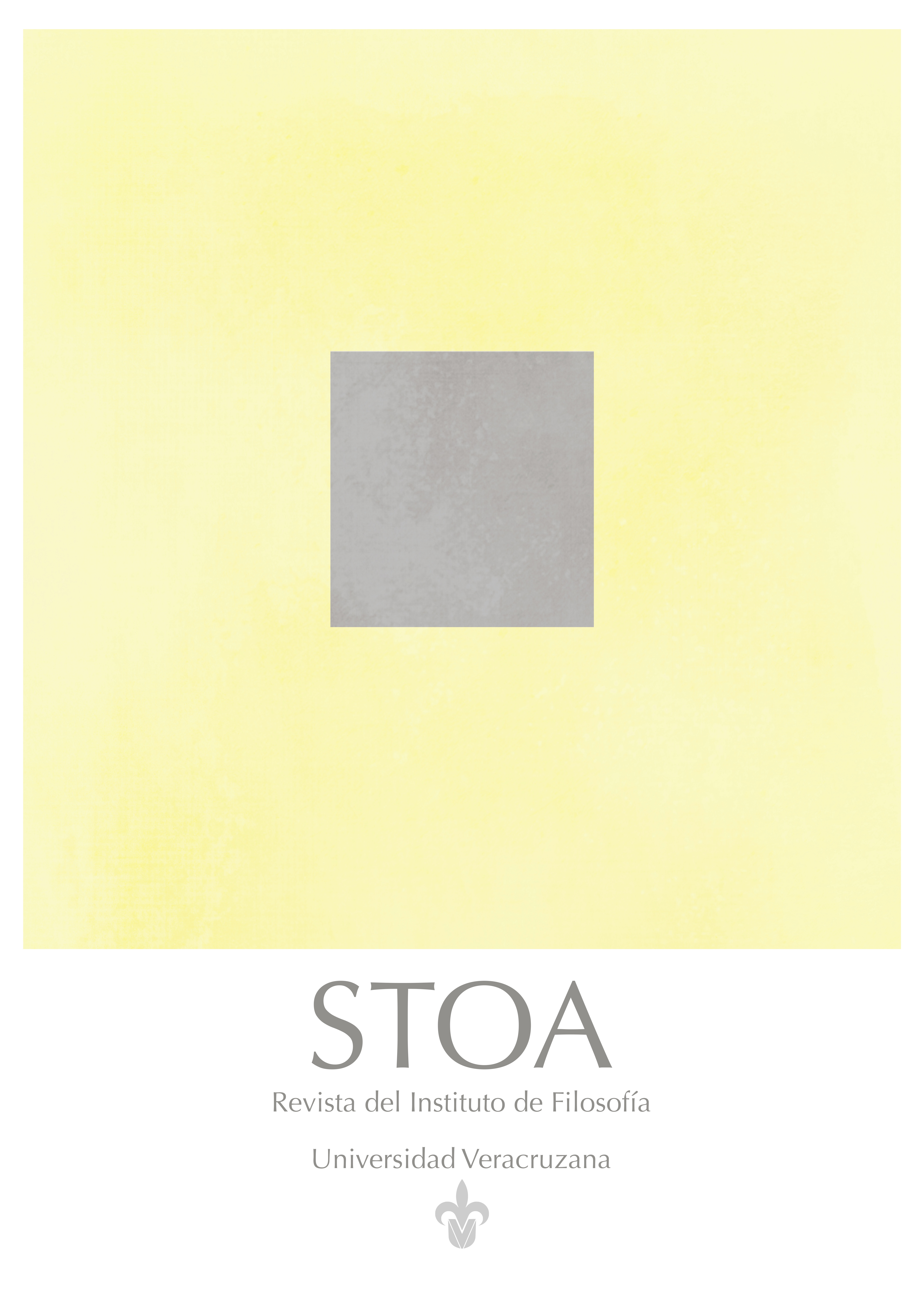Abstract
The catholic society of the twentieth century in its purpose to clarify the scope of the philosophy with respect to the revealed doctrine, advocates for interference of the Greek classic corpus in the Christian doctrine. This is a problem that had great repercussions about the existence of a philosophia christiana, thesis that emerges from a classical question of the relationship fides et ratio. So, in this article exposes some reasons that led ancient Christian thinkers to the use of philosophical ideas and examples that refer to the situation.
STOA is a biannual publication edited by the Institute of Philosophy of the Universidad Veracruzana, Tuxpan, No. 29, Frac. Veracruz, C.P. 91020, Xalapa, Ver., Tel. 8154285, http://www.uv.mx/filosofia. Responsible editor: Jesús Turiso Sebastián. Exclusive Use Rights Reservation No. 04-2008-121012511200-203, granted by the Copyright Reservation Directorate of the National Institute of Copyright of the Secretariat of Public Education, ISSN: 2007-1868. Responsible for the last modification of this issue: Jesús Turiso Sebastián, Tuxpan, No. 29, Frac. Veracruz, C.P. 91020, date of last modification August 5, 2011. Distribution and digital support by the Academic Software Development Department of the Universidad Veracruzana.
The opinions expressed by the authors do not necessarily reflect the position of the editor of the publication. Reproduction by any means of the texts published in this journal may be done as long as the source is cited, including the name of the author, the name and number of the journal, and its electronic address. For more information write to revistastoa@uv.mx.
Revista Stoa is a completely free publication, with no cost for processing or receiving articles and free access.
This work is under a Creative Commons Attribution-NonCommercial-ShareAlike 4.0 International license.

